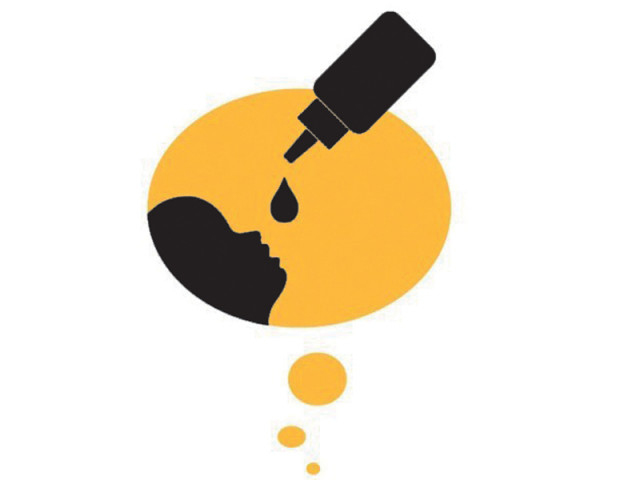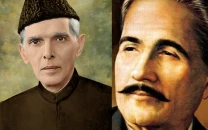Safety not guaranteed: ‘Incentivise workers to gain ground in fight against polio’
While security comes first, Dr Sania Nishtar believes higher pays, life insurance can also motivate.

While security comes first, Dr Sania Nishtar believes higher pays, life insurance can also motivate. PHOTO: FILE
Nishtar, who also founded health think tank Heartfile, finds such support can come by way of life insurance and better wages, and will bolster immunisation efforts at large.
While security might be the biggest, most immediate challenge faced by anti-polio drives, the devil lies in the detail which often goes unnoticed.

The need for electricity which helps maintain the cold chain needed for proper immunisation is often sidelined, leading to wasted vaccination endeavours, points out Nishtar.
According to Samant et al (2007), the oral polio vaccine (OPV) “may lose 4% to 13% of its potency per day at 25°C, 11% to 21% per day at 31°C, and 26% to 34% per day at 37°C.”
The paper, published in the journal Public Health Reports, goes on to illustrate how failing to maintain the cold chain can possibly correlate to polio incidence spikes in high-temperature months in India. “The cold chain plays a central role in the polio eradication initiative in rural areas, given frequent power failures and high summer temperatures.”
A majority of polio cases in Pakistan in 2013 were reported between May and September.
The doctor-turned-health advocate goes on to explain how other oft-missed elements can help in anti-polio campaigns, such as clean water and sanitation. The need to monitor basic health units (BHU) is vital to the motivation of health workers, stresses Nishtar. Better BHUs can also help avoid ‘ghost vaccines.’
“A ghost vaccine is when workers collect salaries without carrying out vaccinations,” explains Nishar. A lack of consistency and monitoring at BHUs allows such workers to slip through the cracks.
Although awareness would help towards lobbying the government to regulate BHUs, Sania Nishtar feels awareness itself takes lift from general improvement in per capita income.
Even as problems of accessibility and religious opposition prevail, Nishtar is confident incentivisation of workers can serve to invigorate the drive to eliminate the crippling disease. “The new government has a historic opportunity to eradicate polio, provided these challenges are surmounted.”
However, Nishtar believes the balance between the centre and provinces is yet to be struck in terms of monitoring and accountability.
The federal Ministry of Health was disbanded in 2010, leaving the infrastructure split in nine divisions across various ministries including the Prime Minister’s Polio Cell.
Attacks on polio teams
December 18, 2012
Five polio workers were shot dead in coordinated attacks in Karachi and Peshawar. The incident caused WHO to halt vaccination activities for a second time in 2012
December 19, 2012
Hilal, a polio team member, was shot in Daudzai, Peshawar. Zakai and her driver Ayaz, members of a team, were shot dead in Trakha, Charsadda
January 28, 2013
A policeman escorting polio workers was shot dead by unidentified people in Swabi district
February 26, 2013
A policeman escorting a team was shot by unidentified men in Ghala Dher, Mardan
April 10, 2013
Two policemen escorting a polio team were shot by unidentified gunmen in Mardan district
May 28, 2013
Two polio workers died as result of firing by unidentified men in Badhaber, Peshawar
May 29, 2013
A mob lobbed stones at polio workers in Thal, Hangu, injuring one
June 16, 2013
Two health workers were shot dead in Padini, Swabi by unidentified assailants on a motorbike
July 7, 2013
A health worker was assaulted by two men for visiting their house to administer vaccines in Chichawatni, Multan
October 7, 2013
A blast in Garhi Mali Khel, Peshawar, targeting polio teams, killed a sub-inspector and two Suleman Khel peace committee members
October 10, 2013
Three khasadars from Khyber Agency protecting polio teams were killed in a blast near Achini
Published in The Express Tribune, October 24th, 2013.



















COMMENTS
Comments are moderated and generally will be posted if they are on-topic and not abusive.
For more information, please see our Comments FAQ